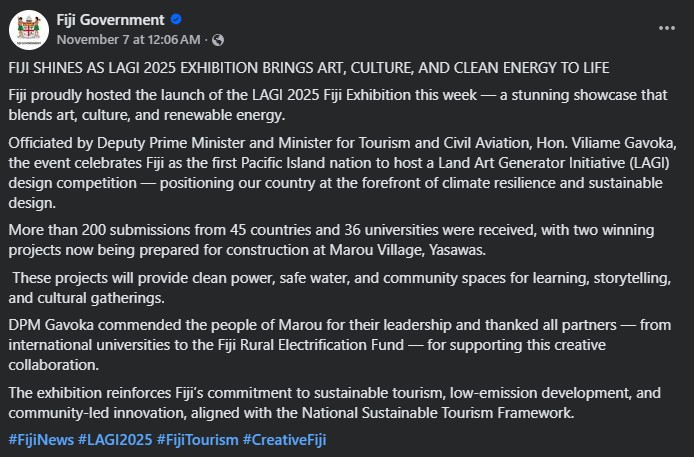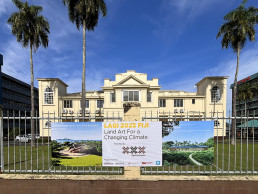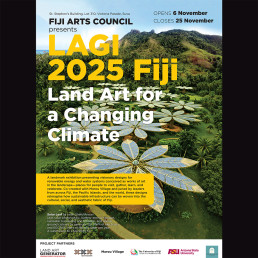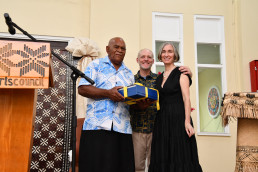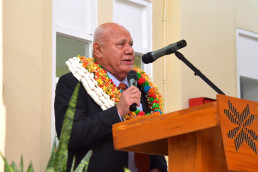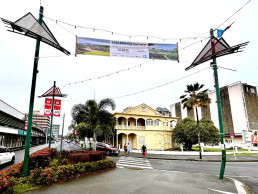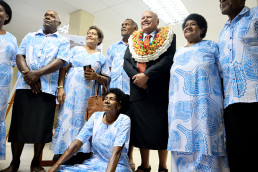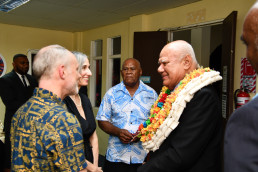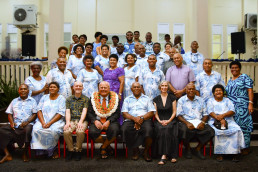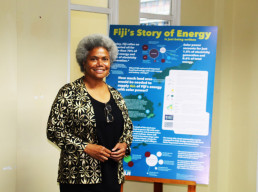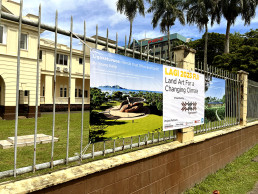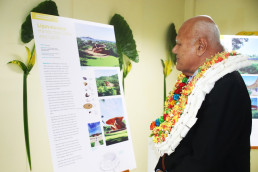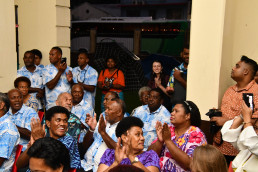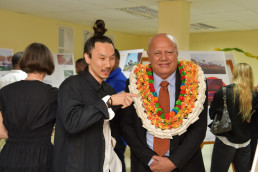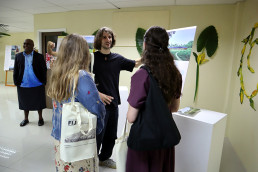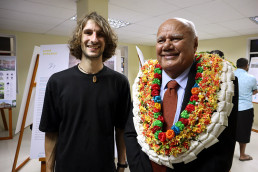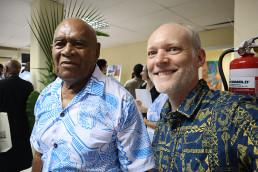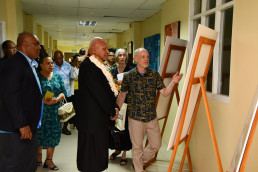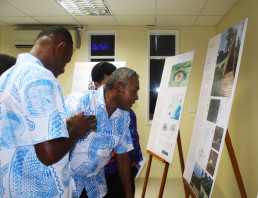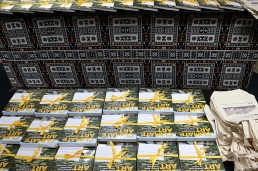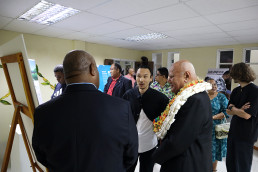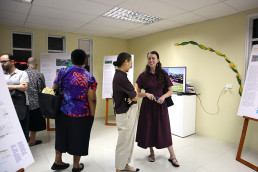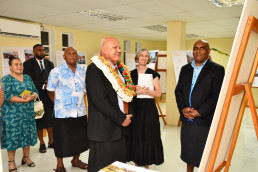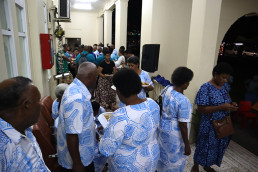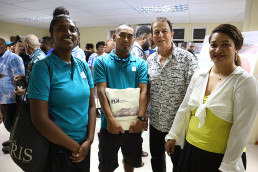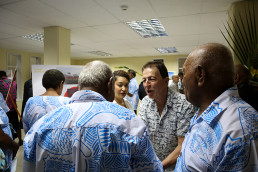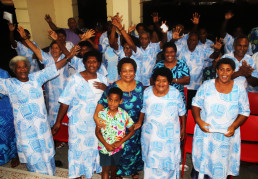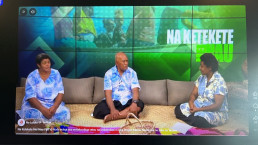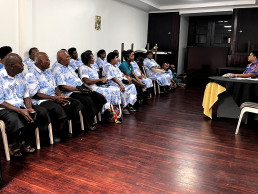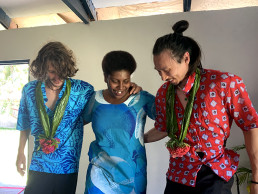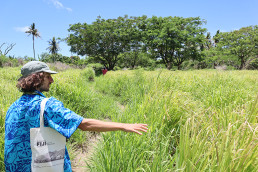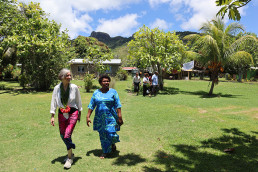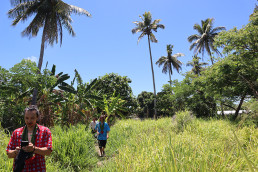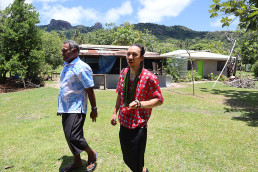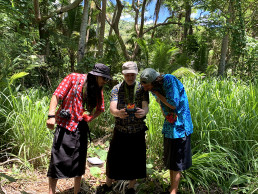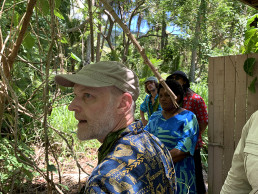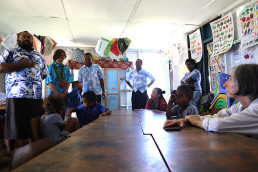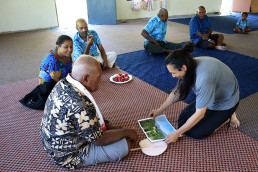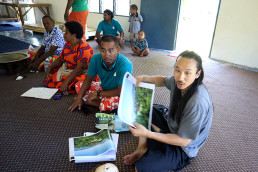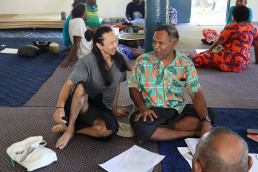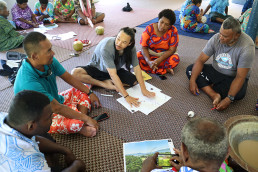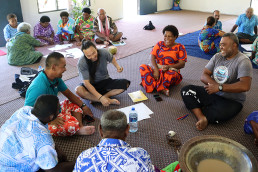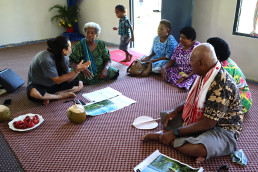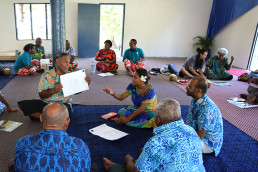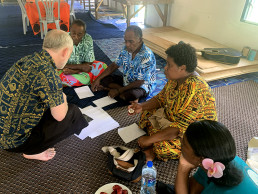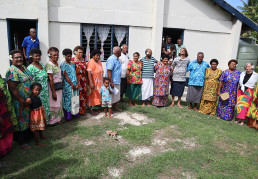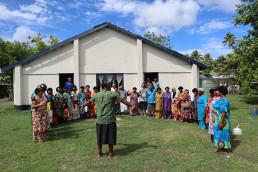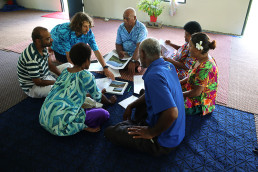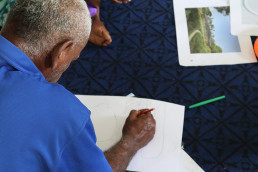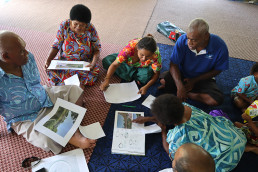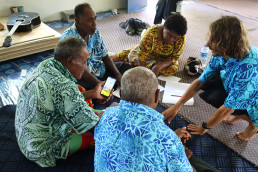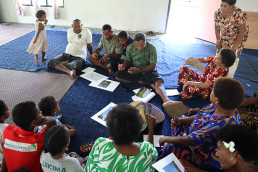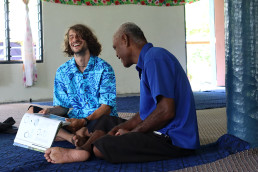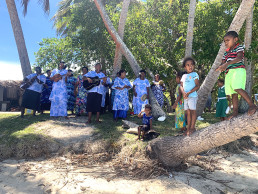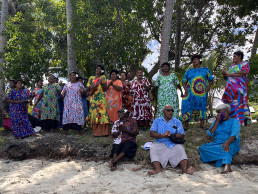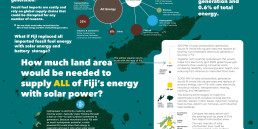Our deepest thanks to all those who helped to make the LAGI 2025 Fiji exhibition and celebration a huge success. The exhibition, which will be up until November 25th at the Fiji Arts Council in Suva, presents 48 innovative design solutions for bringing reliable power and water to remote coastal communities in ways that provide a variety of additional co-benefits.
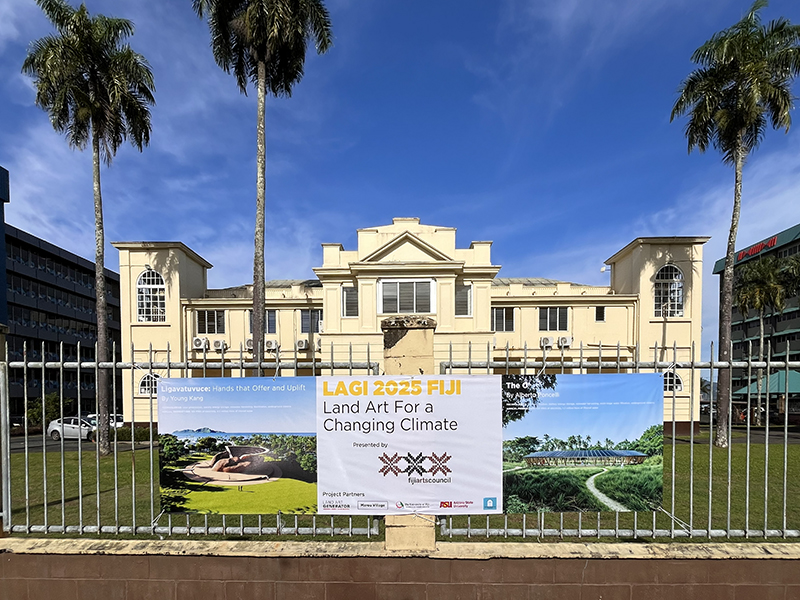
Visitors to the show will learn how art and architecture are colliding with solar minigrid electrification projects for rural communities who are on the front lines of climate change—and just like in particle physics, this fusion is creating quite a lot of energy!
LAGI 2025 Fiji is establishing a replicable model for how to include community in the process of infrastructure development to provide the greatest range of social and economic co-benefits. To learn more about the project, please visit the website at LAGI 2025 Fiji.
Here are a few photos for those who were unable to make it.
Click on the thumbnails for a larger gallery. Click and drag to see more thumbnails.
Exhibition, Community Engagement, and Meetings
Over 100 guests including all project partners joined us on November 6, 2025 at the Fiji Arts Council to celebrate the outcomes of LAGI 2025 Fiji and the leadership of Marou Village.
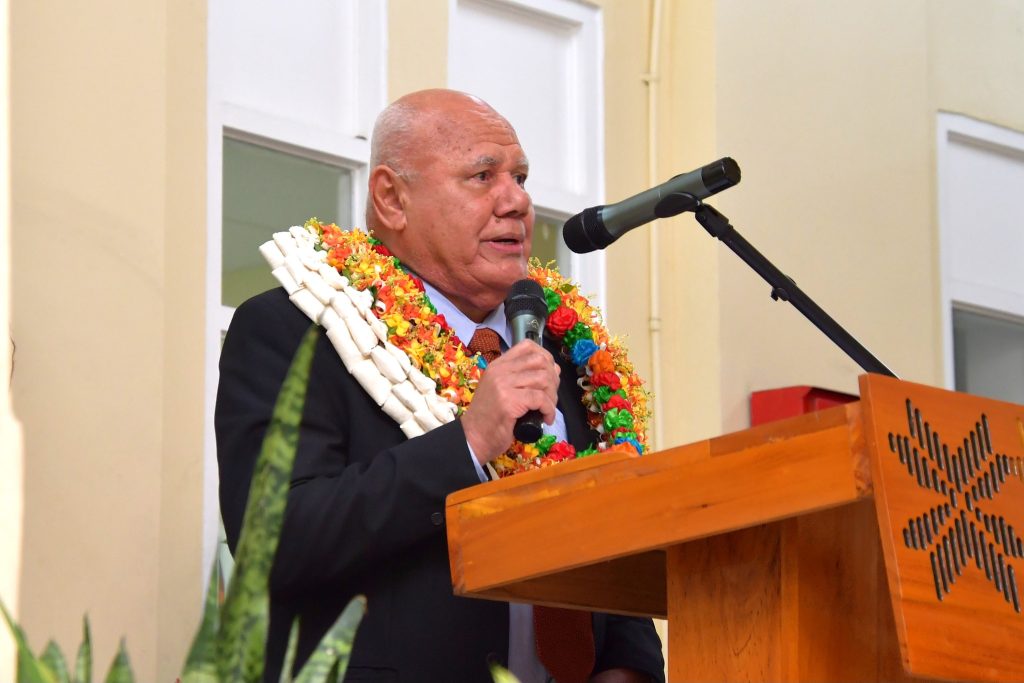
The evening was officiated by the Deputy Prime Minister and Minister for Tourism and Civil Aviation, Hon. Viliame Gavoka, followed by remarks by LAGI, a speech by Marou Village Acting Chief Illisari Naqua, and a welcome from the Fiji Arts Council Director, Maciusela Raitaukala. A song written specifically for the occasion was performed by Marou residents as the finale of the opening ceremony. Elizabeth and Robert gave the DPM a tour of the exhibition, with explanations of each design on display.
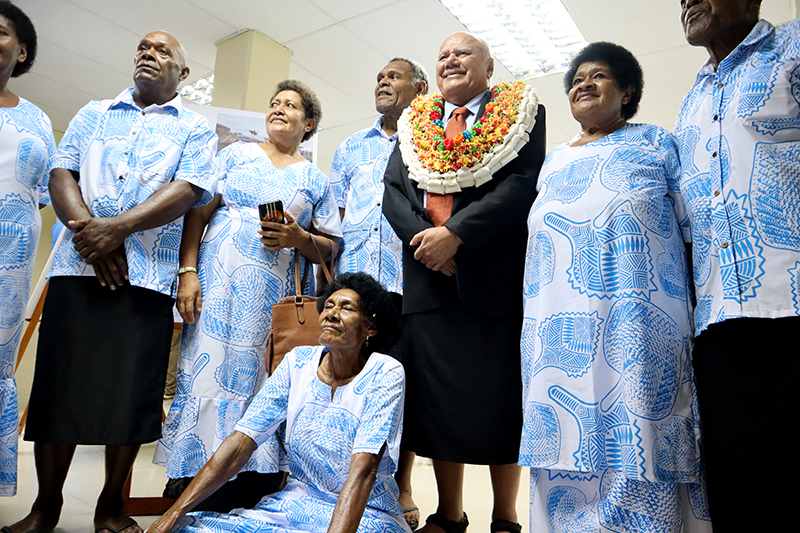
Two dozen residents of Marou Village, led by Ilisari Naqau, Acting Chief, made the long journey to Suva to celebrate with nearly a hundred other attendees. Their day began with an appearance on Fiji One Television, included important meetings with government officials, and culminated in beautiful song, dance, and thoughtful words of reflection.
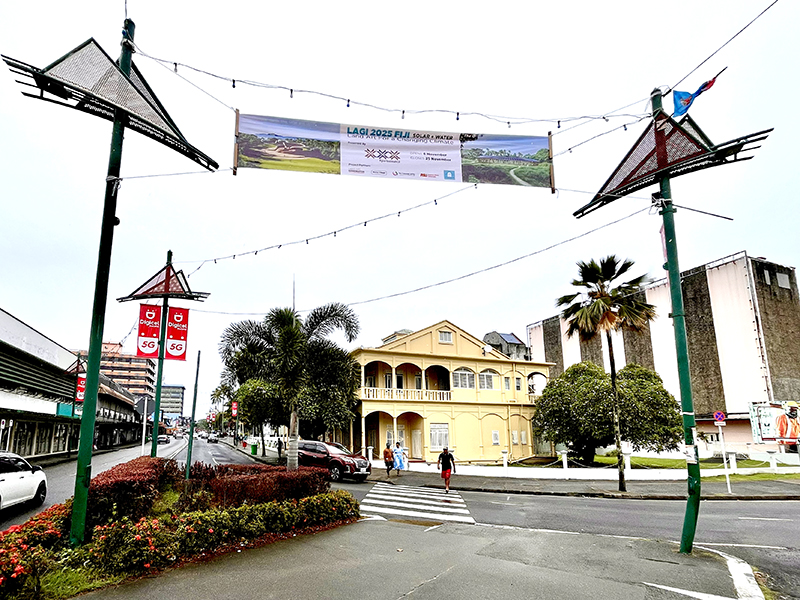
The projects on display through November 25 at Fiji Arts Council are designed to provide clean power, safe water, and community spaces for learning, storytelling, and cultural gatherings. As a tourist attraction they are intended to help sustainable economic growth.
Functional prototypes of both finalists will be on display in front of Fiji Arts Council early next year where the public will be able to experience them in real life.
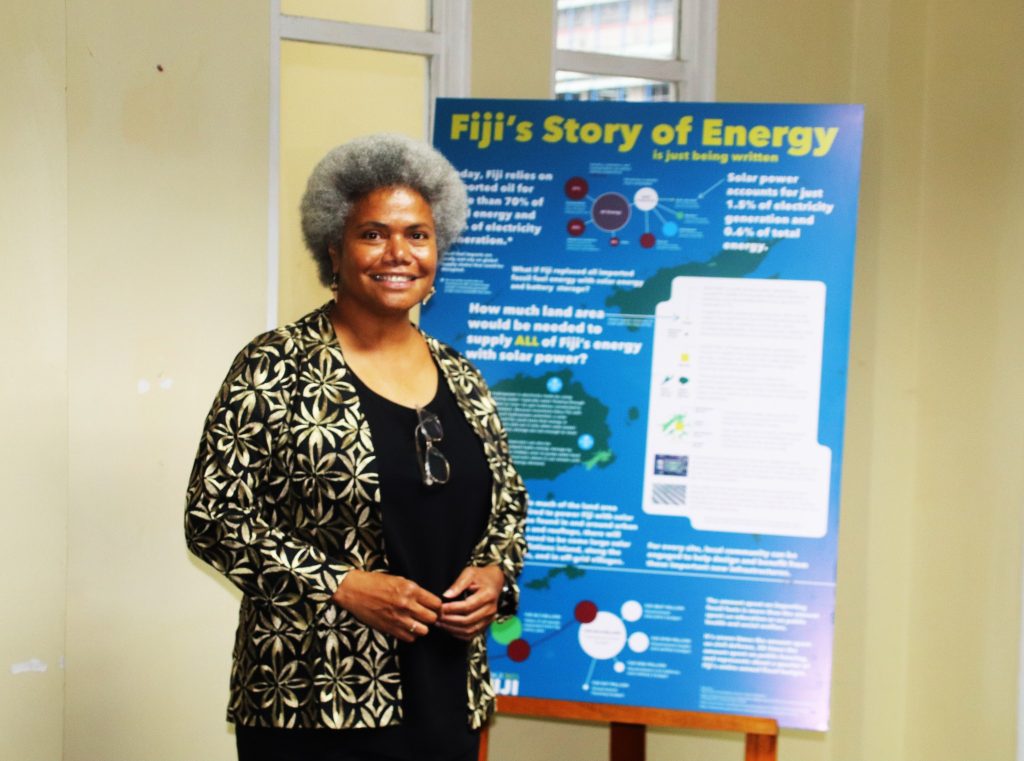
The exhibition reinforces Fiji’s commitment to sustainable tourism, low-emission development, and community-led innovation, aligned with the National Sustainable Tourism Framework.
Thanks to Director Maciusela Raitaukala and everyone at Fiji Arts Council for making the evening such a magical night! Vinaka vakalevu!
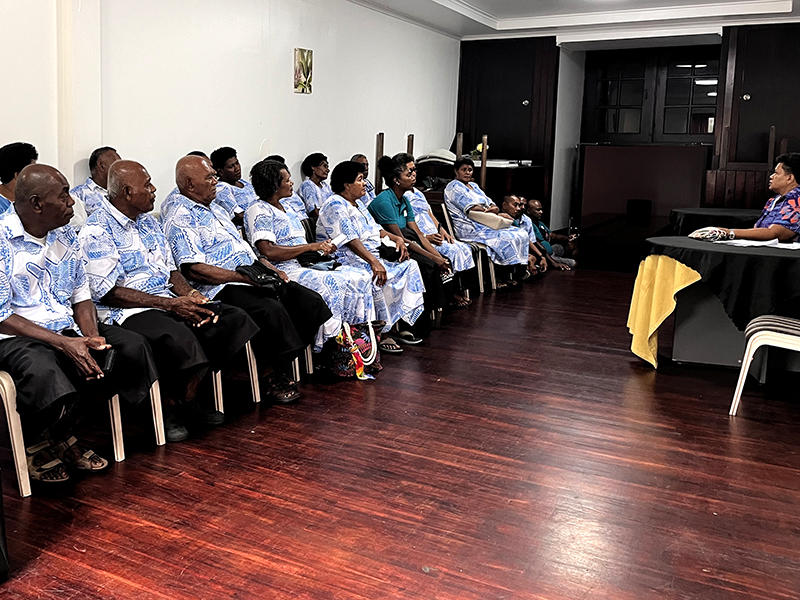
During our time in Suva, both the LAGI 2025 Fiji Stage 1 winning designers—Young Kang (Ligavatuvuce) and Alberto Roncelli (The O)—were able to meet with their local fabricators as they continue to develop their functioning prototypes. We also met with the local solar installer and government officials.
Marou residents met with the Ministry of Cooperatives and put forward their plan for the establishment of an electric cooperative that will manage membership, collect kWh tariffs, and govern the use of funds for system maintenance and reinvestment.
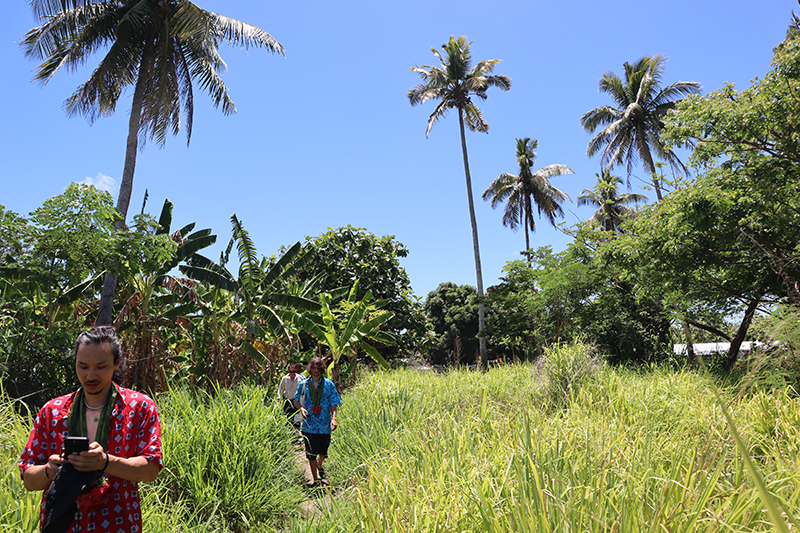
Site Walks and Design Workshops in Marou
After the meetings and event in Suva we returned to the Yasawas on Sunday to facilitate the design workshops and community engagements with the winning teams and Marou residents. A few Marou residents were also on the Seabus that morning, including the Turaga-ni-koro, Tuwawa Ratu, who will be instrumental in establishing the electric cooperative. Lai Kolanivalu, a representative of the Ministry of Cooperatives also rode out with us on the Seabus and then joined the Marou residents on the Crystal Island boat to Marou.
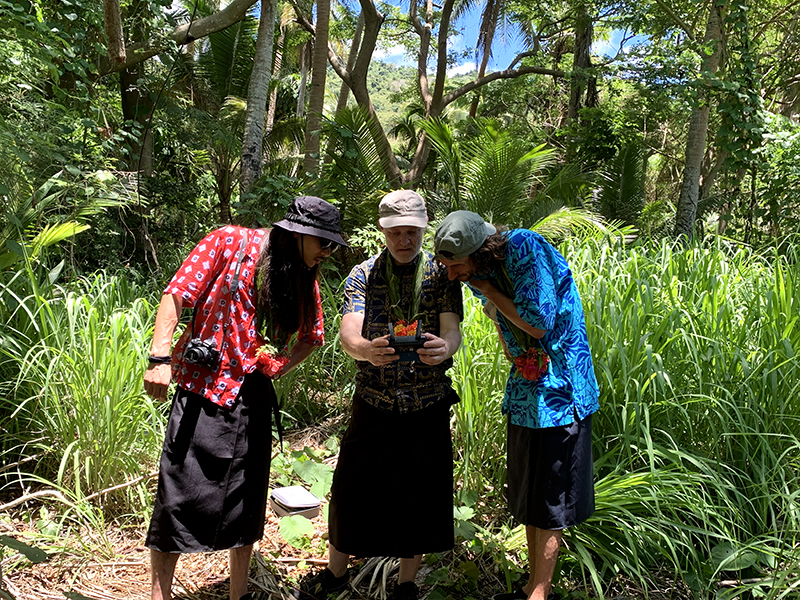
Monday, November 9
Local residents Seru and John led us all for a walk around the LAGI 2025 Fiji design site where the pilot project will be constructed.
We flew the drone and captured some excellent new footage of the site. The grass had grown significantly in comparison to our initial visit in June of 2024, and Seru offered to have it cut down in advance of the geotechnical survey work, which will be taking place soon. Upon our return to the United States, Vika Lasa sent us a video of the residents cutting down the grass and the great feast that she and other prepared for after their hard work.
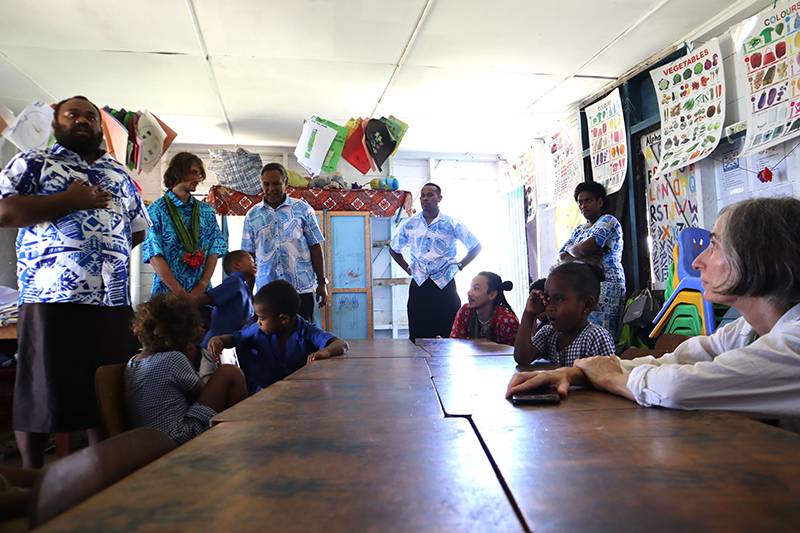
After our site walk we paid a visit to the nearby kindergarten where the children performed two songs in celebration of the project.
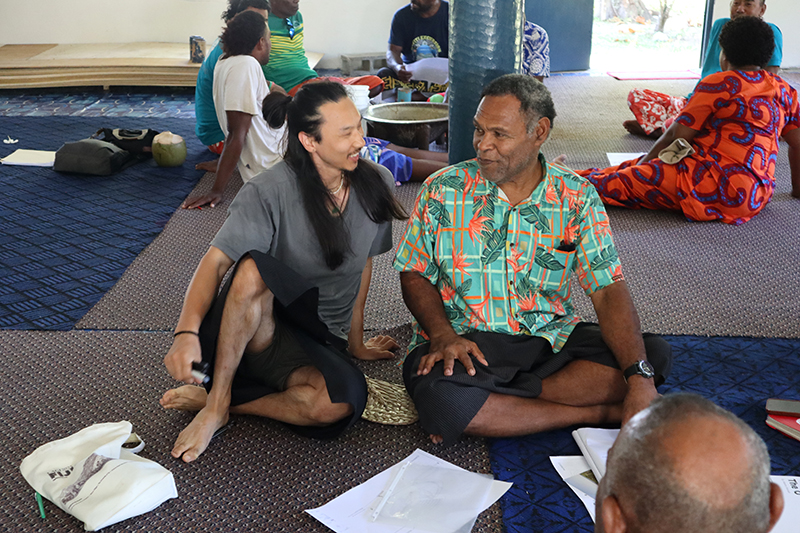
Tuesday, November 10
Young Kang, the designer behind Ligavatuvuce, held his workshop in the community center. With the formal sevusevu complete the previous day, the atmosphere was a bit more casual and the participants were ready to exchange ideas.
At the beginning, Young presented a copy of his latest design drawings to Ilisari Naqau as a gesture of appreciation for all the village has done to help facilitate the co-design process.
Young did a great job of sparking conversations and bringing out ideas for how the design could be improved. The topics ranged from practical considerations such as cyclone resilience, fire safety, bathroom facilities, and maintenance to additional programming ideas, such as a marketplace for the sale of local crafts to tourists.
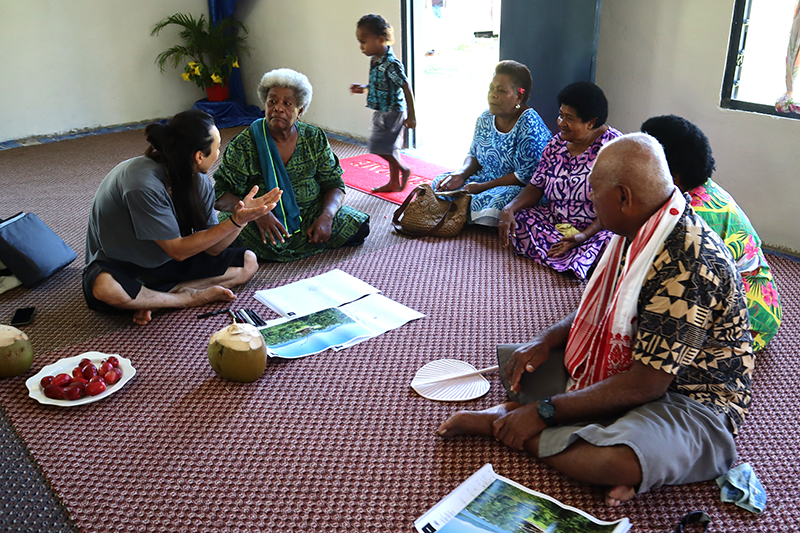
Much of the conversation revolved around how the landscape would be designed in the area surrounding the artwork and how the site would transition from the sculpture to the village and the surrounding natural environment.
Lai Kolinivalu from the Ministry of Cooperatives was on hand to answer questions about how the cooperative would manage future changes and expansion.
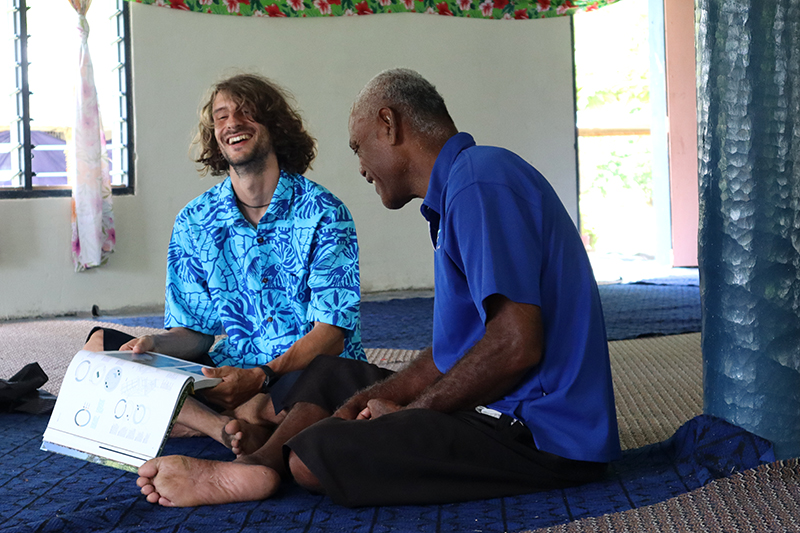
Wednesday, November 11
Alberto Roncelli, the designer behind The O, held his workshop on the last full day of our time in the Yasawas.
After opening formalities and a warm introduction by Alberto, the day began with three groups of Marou residents responding to his prompt to design together. They considered the many ways The O might be used into the future, hosting activities and changing over time.
Ideas for programming and community spaces included a handicraft market, kid’s playground, salusalu flower gardens, and a small medical center.
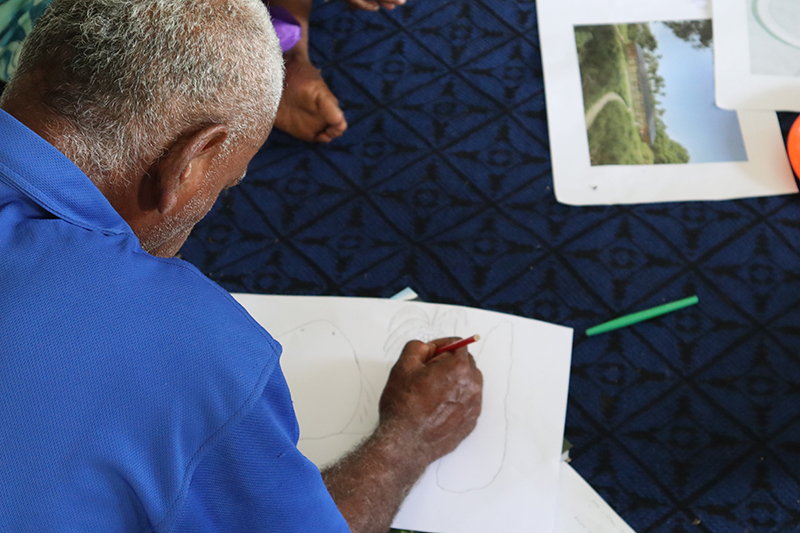
Next, the participants were asked to reflect on symbols that are important to Marou Village. Alberto intends to abstract the most important graphic representations and incorporate them into the installation.
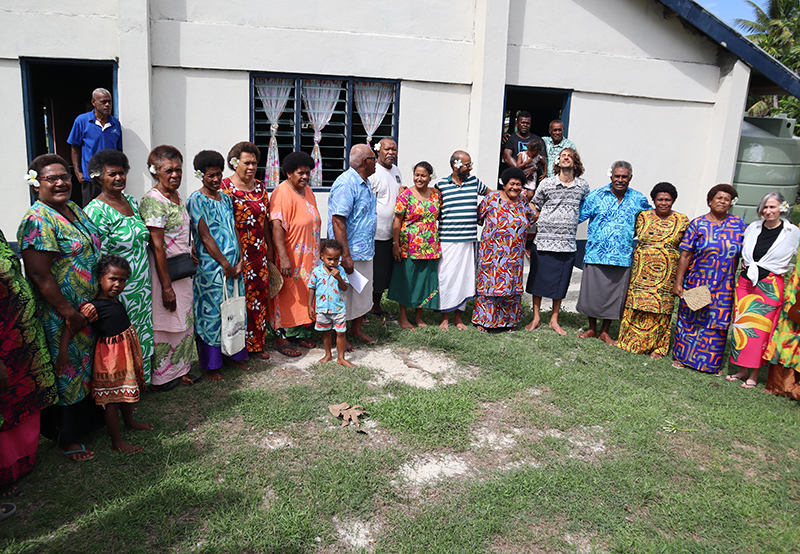
At the conclusion of Alberto’s workshop, the community gathered to make a circle, which represented the O-shape of the project, but also the idea of “o kede kece” or “all of us together.”
Visit the LAGI 2025 Fiji website to learn more about the project.
Project Partners
- The Village of Marou
- The University of Fiji
- Arizona State University
- Fiji Arts Council
- Crystal Island Fiji
- HIRMER Verlag
Project Team
- Residents of Marou: Ilisari Naqau Nasau, Paula Nakarawa, Vesivesi Bose, Seru Lasa, Naibuka Kamayavu, Onisimo Yabakidrau, Solomoni Naqoli, Apasai Kaitoga, Samuela Nabolaniwaqa, Meciu Vuli, Viliame Tuwawa, Siliveno Tuitavua, Inia Lesu, Meli Tauvoli, Joseva Nasau, Vika Seru, Siteri Sawea, Melita Buna, Malelita Nainiata, Miriama Tuwawa Bainivalu, Rota Salio, Lanieta Mavama, Vika Tuirotuma, Timaima Cagilau Ralulu, Akanise Tipo, Lewatu Rejieli, Sera Tamudere, Aralai Vuranovo, Asilika Momoyalewa, Vasiti Talatoka, Ruci Drau, Remivani Toga, Watisoni Daku, Ilisari Vuda, and many others.
- Logistics Support from Crystal Island Fiji: Ilisari Naqau Nasau, Captain Paul McCulloch, David Paka, Rani Ranjini, Sevina Namale, Tabua Batiniu, Manasa Bogiwale, and Iliesa Navuwasese.
- Academic Support: Elena van Hove—Director, Global Energy Access Laboratory for Energy And Power Solutions, Arizona State University. Nathan Johnson—Associate Professor, The Polytechnic School and Director, Laboratory for Energy And Power Solutions, Arizona State University.
- Dr. Ramendra Prasad—Senior Lecturer, Department of Science, The University of Fiji.

